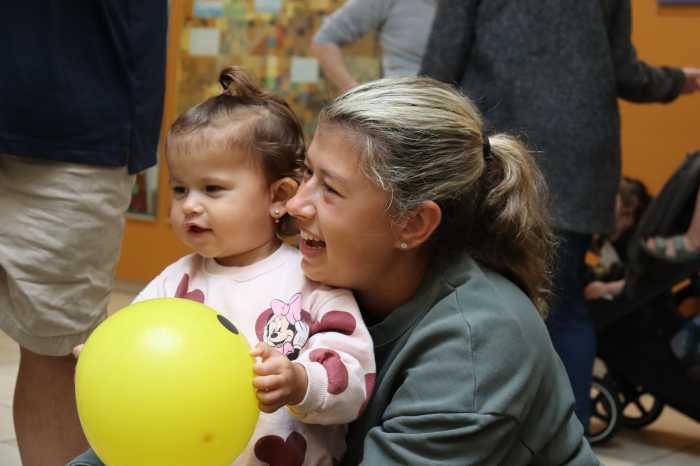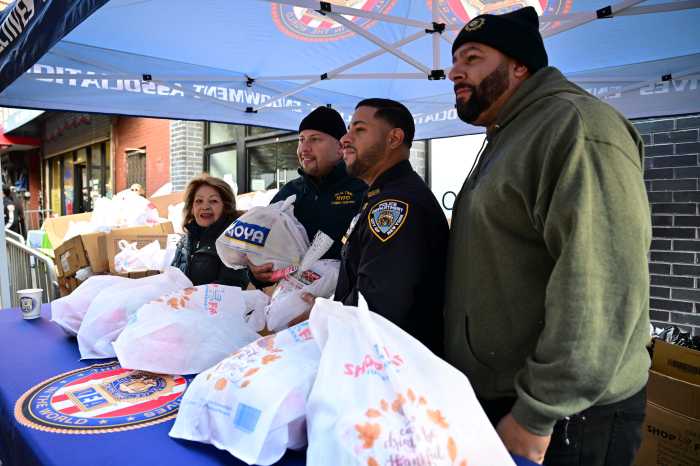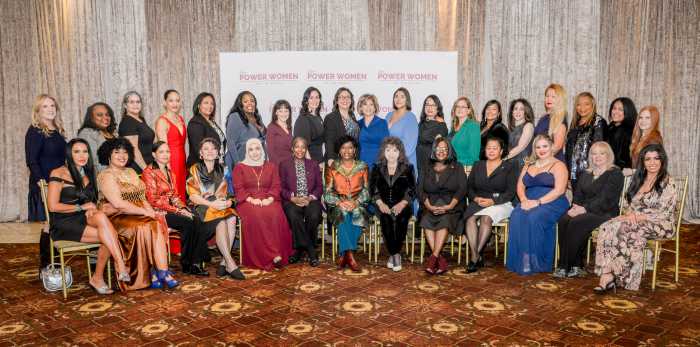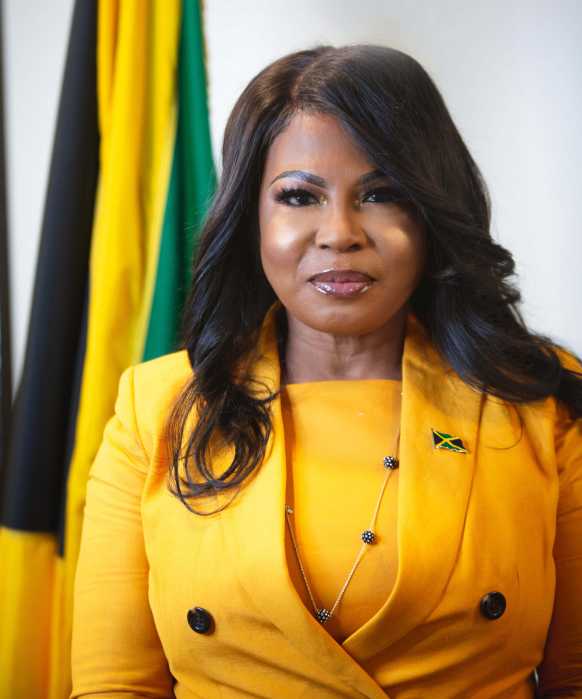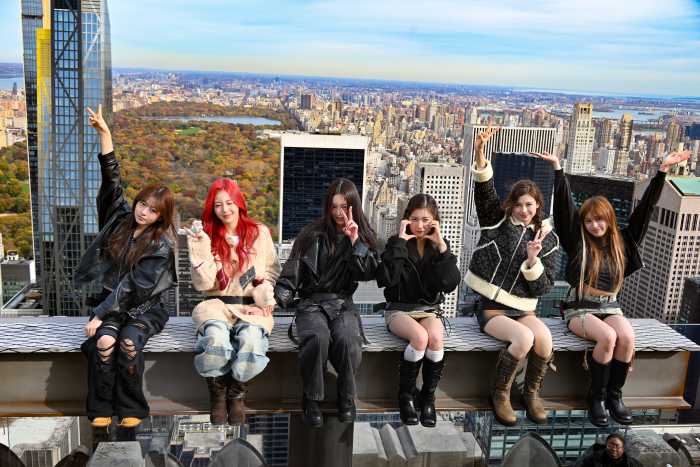The defense called one witness in the trial of Abel Cedeno, charged with manslaughter in the death of one fellow student and the assault of another in a fight with them on September 27, 2017, in their classroom at a now-defunct Bronx high school: Cedeno himself.
And it is one person, Judge Michael A. Gross, who will decide on whether Cedeno’s actions that day constituted self-defense or he should serve five to 25 years on each count. The young defendant, 18 when the fatal encounter occurred, opted for a bench trial rather a jury trial.
Cedeno, wearing a small rainbow heart pin, blue suit, and open pink shirt, told a packed courtroom in the Bronx Hall of Justice on Thursday about his history of being bullied since the sixth grade for everything from having to wear hand-me-down clothes and “messed up shoes” because his family could not afford better to being called “bitch” and “faggot” because he had long hair and “was perceived to be more feminine and gay.” He grew his hair long to be able to donate it to a charity that provided it to kids who had lost theirs to cancer, but in school he just got his hair pulled by bullies — so much so that “sometimes I would fall to the floor.”
Defense counsel Christopher R. Lynn asked if teachers did anything about it when he was bullied.
“No,” he said softly.
“What would you do?” Lynn asked.
Cedeno said, “I would get up and go out, but it didn’t correct the behavior.”
Lynn asked what the teachers would say.
“They would just tell the class to ‘pipe down,’” Cedeno said, but never address the specific bullying behavior.
At one point, he moved briefly to Tennessee to live with a sister and got a respite from the bullying as well as acceptance — in a school where there was more diversity, including out LGBTQ students — but back in the Bronx the bullying continued to the point where he missed so much school he had to repeat a grade.
As things got worse for Cedeno, he and his mother, Luz Hernandez, asked the Department of Education for a transfer to another school.
“They said, ‘No,’” Cedeno said.
He did not tell school authorities at that time that he was gay in front of his mother.
“I thought it was something to be ashamed of,” he said. “The bullies said I was gay and ‘you shouldn’t be gay.’ They were bullying me for something I have no control over.”
Cedeno said that one teacher, a Mr. Ray, proposed “an intervention” to stop the bullying. Ray, he said, wanted to bring Cedeno together with his bullies to “talk it out.” Cedeno told the court, “I said, ‘No. That would make it worse. They would call me a ‘snitch.’”
Cedeno had a Mr. Keating as a teacher and as the person in charge of his IEP, individualized education plan, which is put together for special education students. When kids called Cedeno “faggot” and “bitch,” Cedeno said Keating told them to “quiet down.” Cedeno said that no adult stood up for him against the bullies, including the dean, Matthew Lawlor.
While there were 19 witnesses in the case, most all the student witnesses — prepared by Assistant District Attorneys Nancy Borko and Paul Andersen — described the commotion at the beginning of the American History class where the fatal incident took place as “fooling around” and “having fun.” Cedeno said that when he sat down for the class, he tried to get to work but had pencils and balled up paper thrown at the back of head. In the U-shaped classroom, he knew it was coming from a row behind him but did not know who was throwing things at him. He got up and left the class, hoping things would calm down and the bullies would move on, but when he took his seat the bullying resumed.
“I picked up my things and prepared to leave school as I always did” when this kind of thing happened, he said, but things continued to be thrown at his head. So he stopped at the door and yelled, “Who’s throwing all these things at me. You’re all pussy,” by which, he said, he meant “cowards.”
“It was a word they used against me,” he said, understanding it to mean gay or effeminate. A silence fell over the class. He had never yelled like that before, he said.
Cedeno said, “Then Matthew [McCree] got up and said, ‘It was me.’” Cedeno had never had a confrontation with McCree, but said he knew of his reputation as a fighter and as someone who beat up his friend Branden. Cedeno said McCree walked around the periphery of the classroom, “pushing past [teacher] Paul Jacoby to get to me.” Fearing McCree’s attack, he testified, he pulled out the knife he had and “displayed it,” holding it up with his right hand even though he is left-handed.
“I thought it would scare him,” Cedeno said, but it did not stop McCree’s advance nor did the two teachers and one paraprofessional in the room do anything to intervene.
Cedeno testified, “Frankie Santiago [a student and friend of McCree’s] was trying to hold Matthew back and shouted, ‘He has a knife!’”
Cedeno was conscious of teachers doing nothing, including calling for back up.

“This is real,” he remembered thinking to himself.
McCree “punched me two or three times,” Cedeno said.
Lynn asked him if he had ever been in a fistfight.
“No,” Cedeno said. “I was trying to defend myself.”
Under cross-examination by Borko, he would describe his actions as “swinging my arms around” to deflect punches. When Borko asked when he “stabbed” McCree, Cedeno said he did not know. Once McCree was off him — stabbed fatally it turns out — Cedeno said others started to punch him, mostly McCree’s friend Ariane LaBoy who also came at him from the back of the classroom.
What Cedeno called his defensive swinging cut LaBoy six times, though again he could not recall for Borko trying to stab LaBoy, just that he was trying to stop the punching.
Cedeno recalled being pulled out of the classroom by someone grabbing his backpack from behind. He was brought to the principal’s office, where he surrendered the knife calmly to a counselor, Shavon Evelyn, who, he said, told him to “stay out of sight.” He remembered thinking that “if other students saw me they were going to kill me.” Indeed, the final student witnesses, J’Ileene Ortiz, posted on Facebook when Cedeno was released on bail in October 2017 that she wanted him hurt or killed.
Borko could not pin Cedeno down on when he moved the knife from his right to his left hand. When she read back statements he made to police in the wake of the fight that he had, he said he didn’t remember saying that given the state that he was in at that time.
When Borko tried to characterize Cedeno calling the class “pussy” as fighting words, Cedeno said he used “an upset voice,” not an angry voice.
“I said it to the whole class, not just to the back” of the class where the bullying was coming from, he said, adding that when McCree charged him and pushed past one teacher, “I realized no one was going to help me.”
Asked by Borko why he didn’t just leave the classroom, Cedeno said, “When you fear for your life, you can’t move. You can’t do anything. I couldn’t [leave].” Even as he was being punched by McCree, he said, he could not move his feet though he was knocked back by the blows.
Cedeno told Borko that he hadn’t known the real names of McCree and LaBoy, but had seen them on Facebook under aliases.
Borko tried to get Cedeno to say when he “stabbed” the classmates, but Cedeno kept saying, “I was swinging my arms trying to defend myself.” In frustration, Borko said, “Are your arms attached to your body?,” to which the defense objected and was sustained by Judge Gross.
Borko was also frustrated with the repeated objections of defense counsel Robert J. Feldman, who was reprimanded by Gross for interrupting her cross-examination without giving her a chance to finish questions.
Borko tried to impeach Cedeno by bringing up things he told police and another assistant district attorney the afternoon of the incident. It is now 22 months later, and Cedeno testified, “I don’t remember” things he told them in a daze after the fight that slightly contradict what he is saying now.
At the start of the day, Judge Gross precluded prosecution interrogation about Cedeno’s past “bad acts” — a handful of fights with family members dating back to 2012 — ruling that their probative value was “slight” and that the “prejudice” of such evidence was “clear.” Gross had earlier rebuffed most all defense attempts to introduce the bad acts of the victims — histories of school violence and gang membership — though he did permit Cedeno to say that he knew about their bad reputations because they had beaten up his friend Branden.
At the very end of the day, Louna Dennis, McCree’s mother, was called to the stand to testify that a picture introduced into evidence by the defense as one of her son was in fact one of LaBoy and also that her son’s dominant hand was his left. Cedeno had testified that McCree was punching him with his right hand.
Luz Hernandez, Cedeno’s mother, told Gay City News, “I am praying for both families.”
Out gay former State Senator Tom Duane was in court for Cedeno’s testimony.
“It’s a tragedy,” he said.
The chief sponsor of the state anti-bullying law, the Dignity for All Students Act, Duane added, “A plan is supposed to be in place in every school” to combat bullying. “It’s heartbreaking.”
Judge Gross listened intently to Cedeno’s every word — as he did with all the witnesses in the case. He will hear closing arguments on Friday and then take the time he needs to review the case record and render a judgment — no earlier than Tuesday of next week and possibly later.







